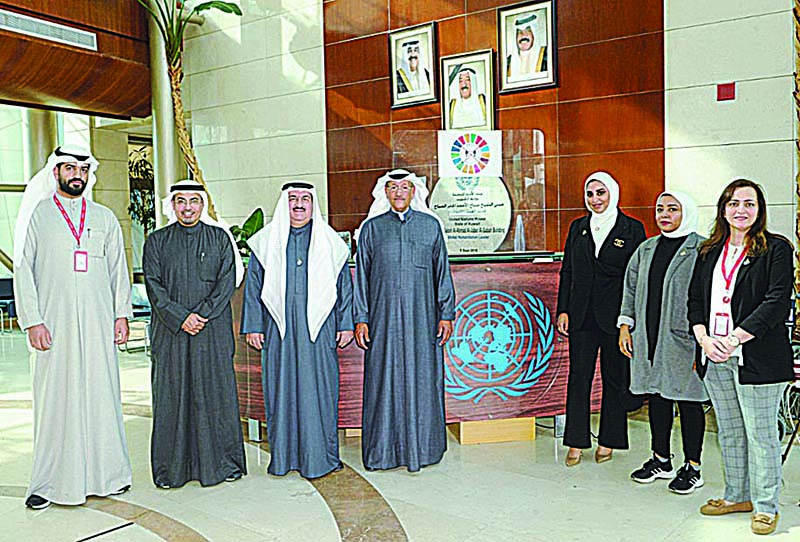KUWAIT: Kuwait Red Crescent Society (KRCS) and United Nations Office for the Coordination of Humanitarian Affairs in Kuwait (OCHA) held yesterday a workshop on international humanitarian affairs, emergency preparedness and climate change. The two-day workshop aims to exchange experiences in order to protect and manage the environment, avoid disasters and reduce their effects. In a speech, he delivered during the workshop, KRSC Assistant Director Anwar Al-Hasawi said that Kuwait contributed to activating the role of the local community to control disaster risks by increasing social awareness.
"KRSC has realized the seriousness of these disasters and the severe damage they caused in a number of Arab countries,” Hasawi added. He explained that KRCS was keen to participate with international organizations in many conferences and workshops related to early warning of natural disasters, including the International Federation of the Red Cross and Red Crescent and the United Nations Office for the Coordination of Humanitarian Affairs. Hasawi called for the use of modern technologies to enhance capacities in reducing disasters and confronting risks to ensure a safer world for future generations, expressing his hope that the workshop would produce important, realistic and feasible recommendations.
Calls for action
Meanwhile, Director of the Emergency Preparedness and Response Unit at the United Nations Office for the Coordination of Humanitarian Affairs, Rmzi Al-Dhafer, expressed his appreciation for Kuwait’s efforts in the field of climate change at the local and international levels, and its calls for action to confront climate change. He referred to the efforts made by the Emergency Unit in the Office to alleviate the suffering of the most vulnerable populations in the region and mitigate the increasingly devastating effects of climate change.
In a statement to the press, Director of Disaster and Emergency Management at KRCS Yousef Al-Meraj said on the sidelines of the workshop that several topics were discussed, including international humanitarian law and information, early warning systems, disaster response mechanism, principles and rules of humanitarian response for the Red Cross and Red Crescent, and Climate and Environment Charter for humanitarian organizations.
The workshop will also discuss a working paper on climate changes and monitoring the global warming phenomenon and its impact on the local environment, as well as the resulting significant rise in temperatures, which led to the large number of dust storms and their economic consequences, Meraj stated. He pointed out that the workshop will discuss the dimensions of climate change on the Kuwaiti environment, the most important international agreements ratified by the State of Kuwait in this regard, and the mechanism for implementing its commitments and efforts to reduce carbon emissions. —KUNA




